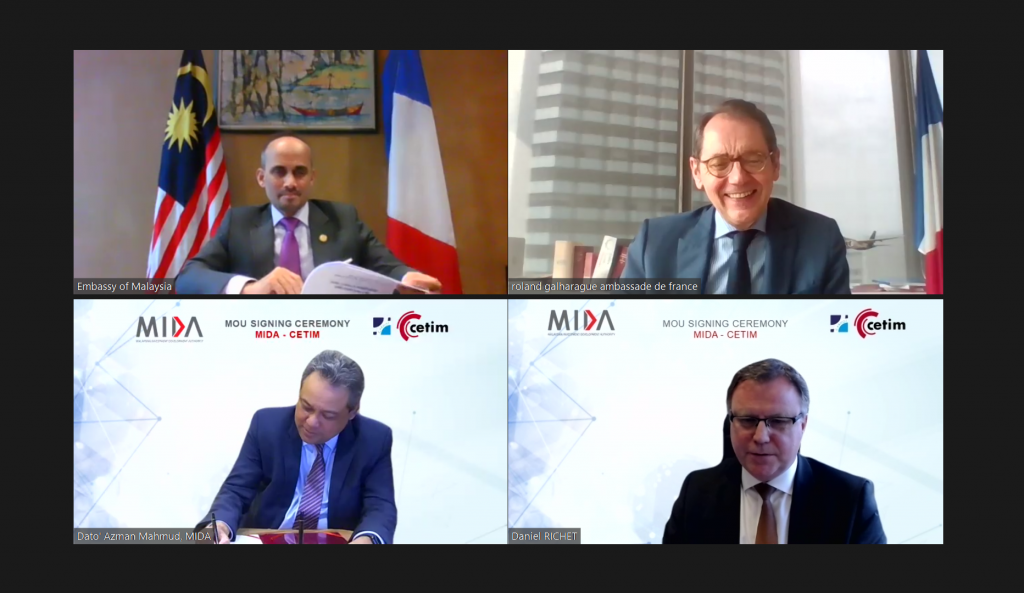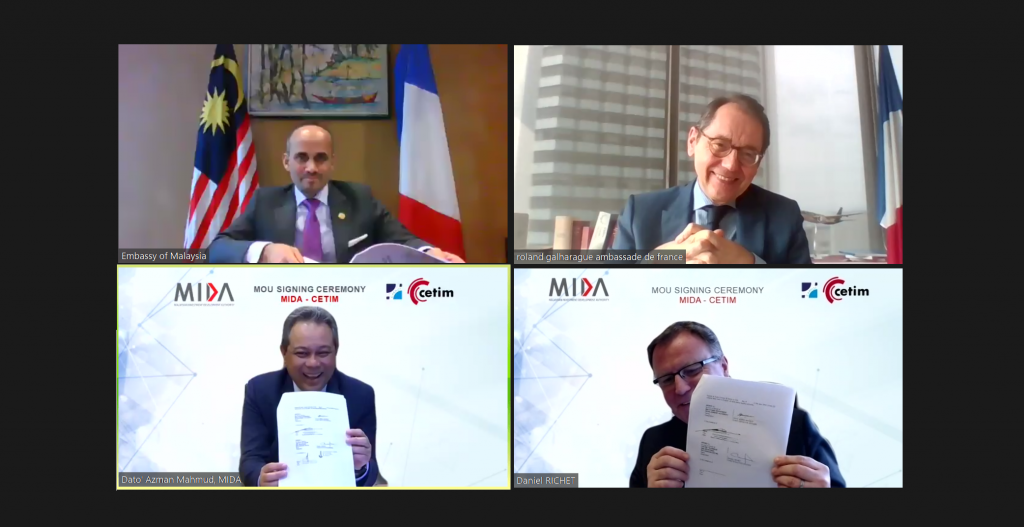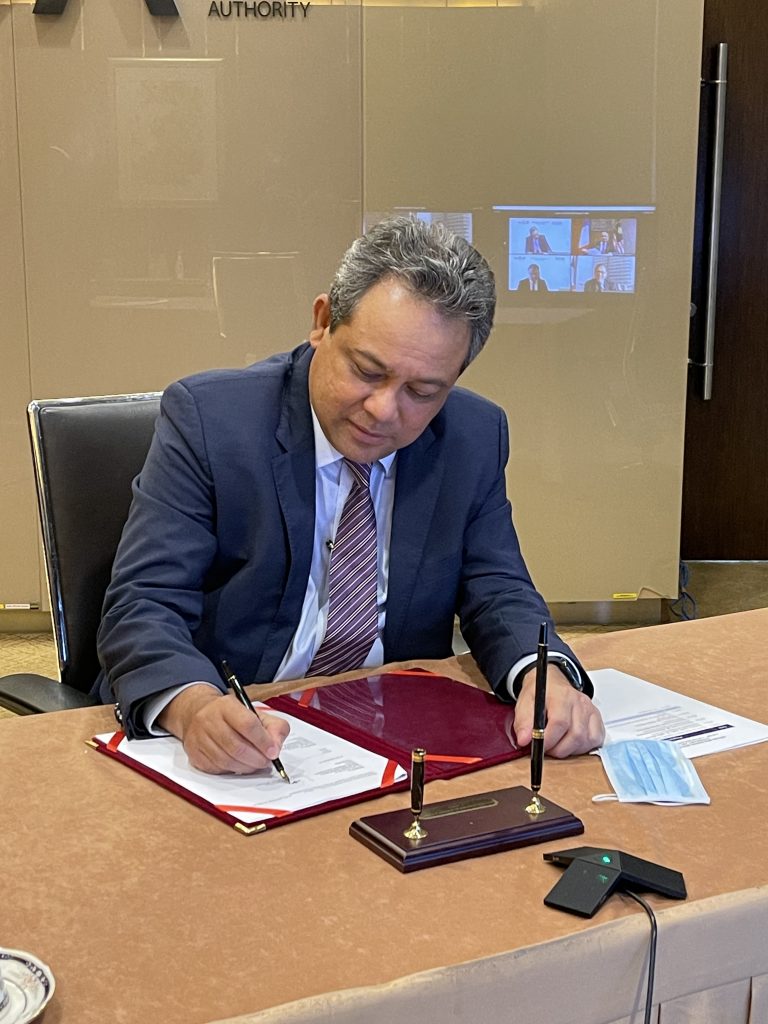Kuala Lumpur, 26 February 2021 – Cabot Corporation will continue its strategic investments to expand its manufacturing as well as research and development (R&D) capabilities at its plant in Port Dickson, Negeri Sembilan, Malaysia.
The global speciality chemicals and performance materials company announced the launch of its Engineered Elastomer Composites (E2C™) solutions in 2020 as part of its efforts in raising the bar within the tire and industrial rubber industry. To further expand manufacturing of its E2C solutions, Cabot is increasing its staff strength by more than 30 per cent as well as installing enhanced digital controls and automation systems. The Company is also signing a long-term extension and expansion of its land lease in Port Dickson.
Cabot’s Port Dickson site has led the industry by developing the first industrial scale, continuous liquid mixing process for natural rubber latex. With Cabot’s expanded R&D capabilities, it will continue to lead and advance rubber technology through specific innovations such as new tools for modeling and optimisation of liquid mixing, novel methods for characterising elastomer composites as well as automation of continuous rubber processing.
Dato’ Azman Mahmud, Chief Executive Officer of the Malaysian Investment Development Authority (MIDA), welcomed the Company’s commitment and confidence in Malaysia, “This investment by Cabot, a global leader in the development and commercialisation of innovative elastomer composites, is even more recompensing in the backdrop of the current challenges surrounding the pandemic. It is a testament to Malaysia’s resilient business environment and promising returns to investors. MIDA is confident that Cabot will benefit from Malaysia’s solid chemical industry ecosystem, backed by investor-friendly business environment and policies as well as the availability of talented and skilled workers in the country.”
“Cabot has joined other industry players to choose Malaysia as their investment destination, particularly within the speciality chemicals sphere. As partners to investors, MIDA remains committed to drive high quality and knowledge-driven projects into Malaysia, in line with our national investment agenda for long term sustainable growth of the economy,” added Dato’ Azman.
David Reynolds, Vice President and General Manager at Cabot Engineered Elastomer Composites added, “Our plant in Malaysia has been a key asset for us as we have continued to develop and expand our portfolio of elastomer composites solutions. We are excited about the launch of our new E2C line of products and the sustainability benefits that they provide in a variety of customer applications. As such, we are committed to continuing to partner with MIDA to strengthen our investments in Port Dickson and support the growth of this high-performance product line.”
Cabot’s E2C solutions are a new category of performance rubber composites based on a proprietary liquid mixing process for natural rubber latex, including three commercially viable products for off-the road mining tire applications. Tires made with E2C solutions last longer and are more energy efficient, resulting in reduced raw material consumption, fewer end-of-life tires and lower carbon dioxide emissions.
Furthermore, during the rubber compounding process, E2C solutions require fewer mixing stages, shorter cycles and lower temperatures, translating into additional sustainability and economic benefits. As a result, E2C solutions support more sustainable mobility, a key element of Malaysia’s National Automotive Policy, designed to enhance the country’s economic competitiveness while reducing the negative impact on the environment.
Cabot’s E2CTM solution was also named in the European Rubber Journal’s inaugural Top 10 Elastomers for Sustainability List in July 2020. Learn more about the E2CTM solution at cabotcorp.com/e2c.
*****
About MIDA
MIDA is the government’s principal investment promotion and development agency under the Ministry of International Trade and Industry (MITI) to oversee and drive investments into the manufacturing and services sectors in Malaysia. Headquartered in Kuala Lumpur Sentral, MIDA has 12 regional and 20 overseas offices. MIDA continues to be the strategic partner to businesses in seizing the opportunities arising from the technology revolution of this era. For more information, please visit www.mida.gov.my and follow us on Twitter, Instagram, Facebook, LinkedIn and YouTube channel.
About Cabot Corporation
Cabot Corporation (NYSE: CBT) is a global speciality chemicals and performance materials company, headquartered in Boston, Massachusetts. The company is a leading provider of rubber and speciality carbons, activated carbon, inkjet colorants, master batches and conductive compounds, fumed silica, and aerogel. For more information on Cabot, please visit the company’s website at: http://www.cabotcorp.com.
Media Contacts:
MIDA
Manjit Kaur Balkar Singh (Ms)
Email: [email protected] | DL: +603-2267 3509
Cabot Corporation
Thirunavuc Karasu (Mr)
Email: [email protected]
Cabot Corporation, Producer of Engineered Elastomer Composites, Expands Investments in Malaysia for New Sustainable Rubber Technology
Content Type:
Duration:





